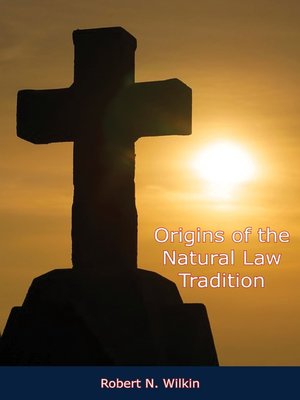
Sign up to save your library
With an OverDrive account, you can save your favorite libraries for at-a-glance information about availability. Find out more about OverDrive accounts.
Find this title in Libby, the library reading app by OverDrive.



Search for a digital library with this title
Title found at these libraries:
| Library Name | Distance |
|---|---|
| Loading... |
"CONCEPTS of a Law of Nature are as old as Western philosophy. From its inception Greek philosophy was concerned to reduce the apparent chaos and conflict of the visible world to some principle of harmony and order. The true relationship of man to the world about him was of primary concern. Philosophical solutions of these problems were found in concepts of Natural Law by which men could be brought into an ideal relationship with each other and with their environment. "In selecting the four theories of Natural Law it was thought advisable to explore only concepts of Natural Law as a manifestation of universal order, leaving for the future the subsidiary notions of Natural Rights developed in more recent centuries. The four theories have been presented in terms of their principal expositors: Cicero, with his transcending synthesis of the Aristotelian man and the Stoic cosmology; St. Thomas Aquinas, with his Hellenized adaptation of traditional Jewish-Christian theology; Richard Hooker, who provided an intellectual bridge between the neoclassical Natural Law of Bracton, of John of Salisbury, and of Anglican theology, and the rationalist Natural Rights doctrines of the seventeenth century; and Herbert Spencer, who constructed a sort of Natural Law on the basis of the natural laws of biological existence as propounded by Charles Darwin." (From the Introduction by Arthur L. Harding)







